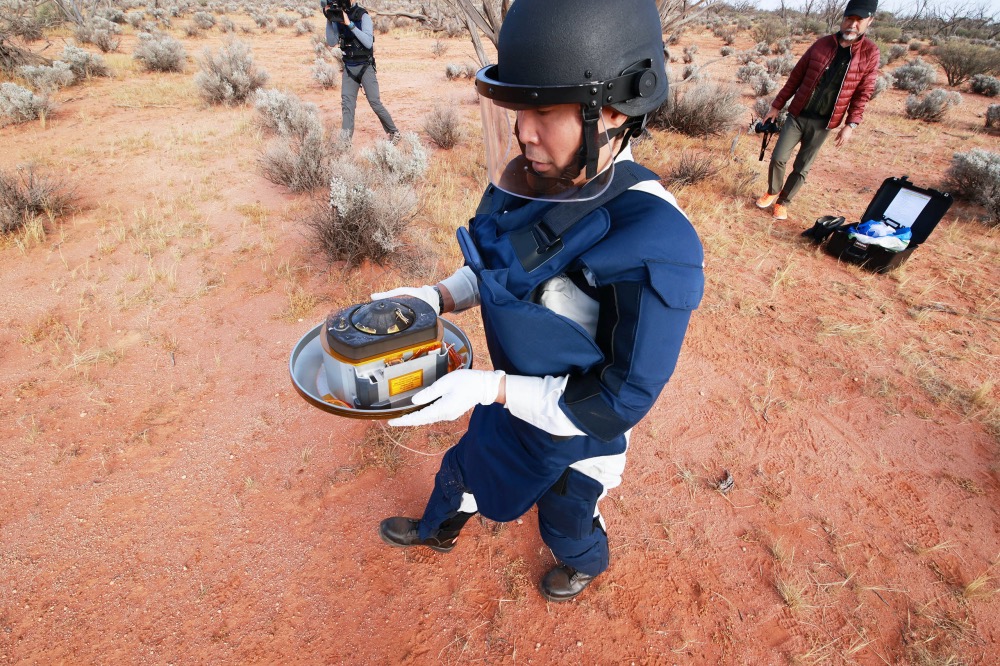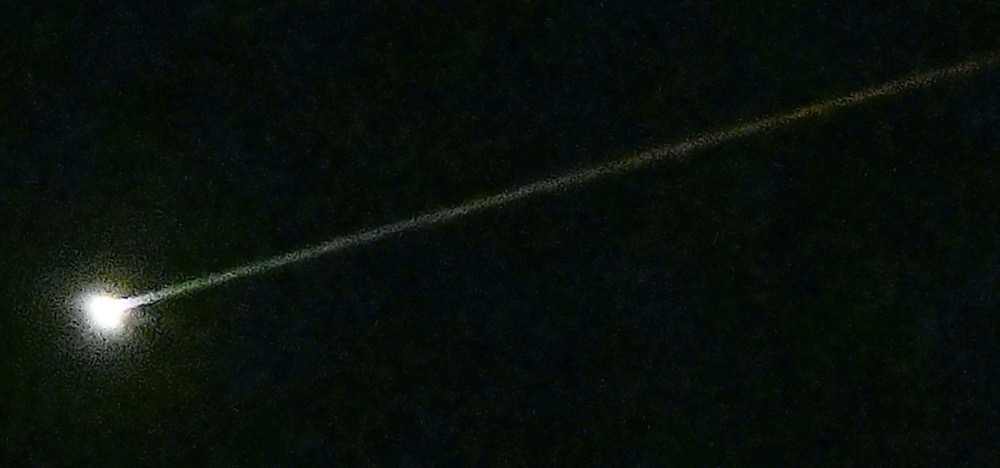Tokyo, Japan/Melbourne, Australia
Reuters
Japan has retrieved a capsule of asteroid dust from Australia’s remote outback after a six-year mission that may help uncover more about the origins of the planets and water, the Asian nation’s space agency said on Sunday.
The mission of the Japanese spacecraft, Hayabusa2, spotlights Asia’s growing role in space exploration, with a Chinese robotic vehicle collecting lunar samples last week for the first time since the 1970s.

In this handout image from Japan Aerospace Exploration Agency (JAXA), a member of JAXA collects Hayabusa2’s capsule carrying the first extensive samples of an asteroid after it landed in the Woomera restricted area, Australia, on 6th December. PICTURE: Japan Aerospace Exploration Agency (JAXA)/Handout via Reuters
A helicopter flew the capsule from the unmanned craft, containing the first extensive samples of asteroid dust, from the landing site in Australia’s desert to a domestic research facility of the Japan Aerospace Exploration Agency (JAXA).
“The probe landed on the asteroid twice, and the second time it created an artificial crater and collected some debris,” agency president Hiroshi Yamakawa told a news conference.
“I hope this will shed light on how the solar system was formed and how water was brought to Earth.”
The capsule may also contain some gas, which will be extracted in Australia, Yamakawa added.
The spacecraft, launched in 2014 from Japan’s Tanegashima space centre, journeyed for four years to the asteroid Ryugu, where it gathered a sample and headed home in November, 2019.
Spectators gathered at a theatre near the Japanese capital of Tokyo to view the return clapped and waved banners in NHK footage, with one woman in tears. They wore masks and kept a distance from each other as precautions against the coronavirus.
Asteroids are believed to have formed at the dawn of the solar system, and scientists say the sample may contain organic matter that could have contributed to life on Earth.
“What we are really doing here is trying to sample this pristine rock that has not been irradiated by the sun,” astrophysicist Lisa Harvey-Smith told the Australian Broadcasting Corporation.

Japan Aerospace Exploration Agency (JAXA) Hayabusa2’s capsule carrying the first extensive samples of an asteroid lit up as it enters the earth’s atmosphere while it is observed at Coober Pedy, Australia, in this photo taken by Kyodo on 6th December. PICTURE: Kyodo/via Reuters.
Gases trapped in the rock samples could reveal more about conditions prevailing about 4.6 billion years ago, she added.
The retrieval of the capsule also highlights close technical cooperation between Japan and Australia.
“Our job supporting JAXA will not be complete until we see the sample…safely leaves Australia and returns to Japan,” Megan Clark, head of the Australian Space Agency, told the news conference.
“And then the sample will start to tell its stories and reveal to us some wonderful signs about how water arrived on our Earth and how we even may have been formed, such as our organics, carbon-based animals, humans, and plants.”
Japan’s craft, named for the peregrine falcon, a bird of prey, orbited above the asteroid for a few months to map its surface before landing. It used small explosives to blast a crater and collected the resulting debris.
After Hayabusa2 dropped off the capsule, it changed course and headed back into space.
The capsule lit up on re-entry into the atmosphere early on Sunday and landed in the Woomera restricted area, about 460 kilometres north of Adelaide, the space agency said.






